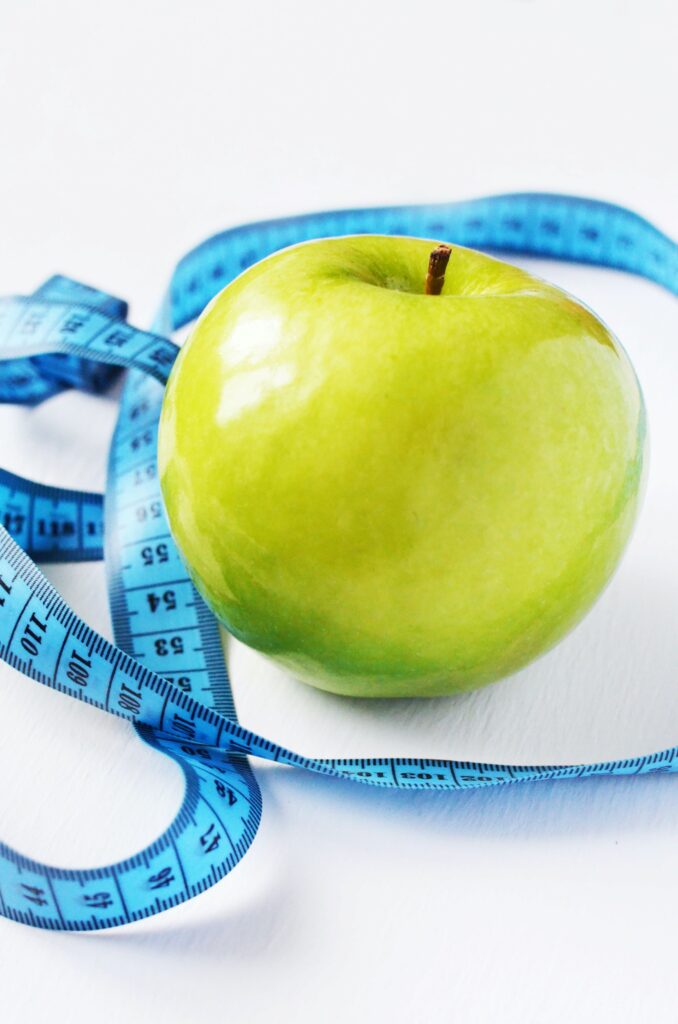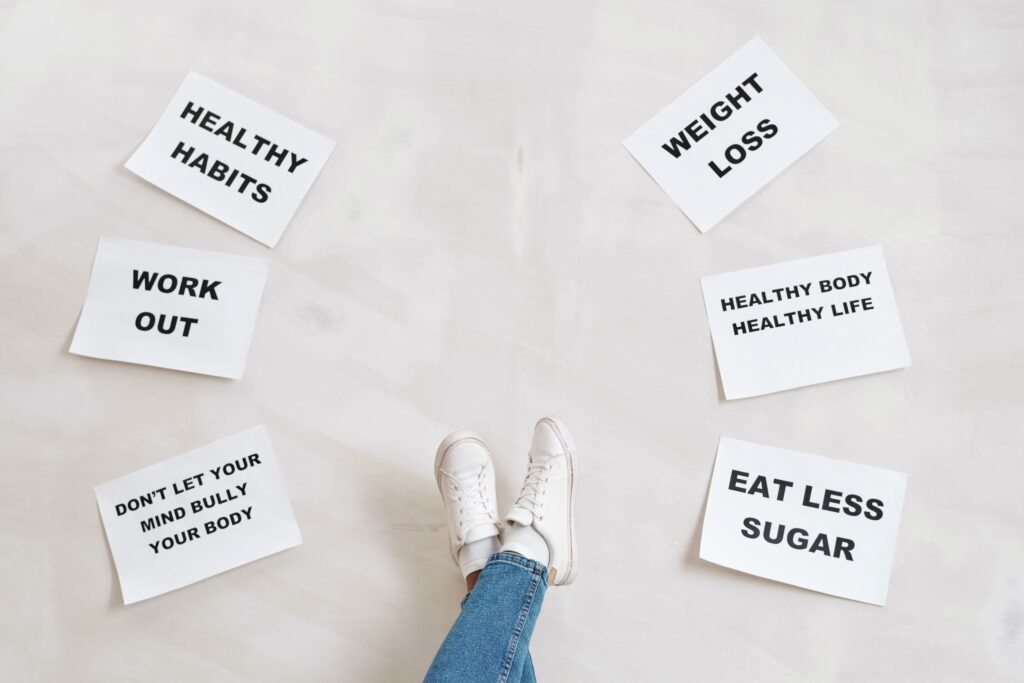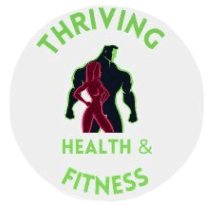Your Guide to Healthy and Sustainable Weight Management
Proper nutrition plays a crucial role in weight loss and achieving sustainable weight management. It’s not just about counting calories or following the latest fad diet; it’s about nourishing your body with the right nutrients to support your weight loss goals. In this comprehensive guide, we will explore the relationship between nutrition and weight loss, delve into macronutrients, discuss creating a balanced diet, examine the role of exercise, highlight healthy habits, provide strategies for overcoming challenges, and emphasize the importance of seeking professional guidance.
I. Understanding Macronutrients for Weight Loss
A. Carbohydrates and their impact on weight loss
There are a lot of misinformation when it comes to Carbohydrates. However, they are a vital source of energy for the body and should not be eliminated completely from your diet. The key is to focus on complex carbohydrates such as whole grains, fruits, and vegetables, while limiting refined and processed carbs. Complex carbohydrates provide fiber, which aids in digestion and helps you feel full for longer, reducing the likelihood of overeating. Additionally, they offer essential vitamins and minerals that support overall health.
B. Protein and its role in supporting weight loss
Protein is an essential macronutrient that plays a significant role in weight loss. It helps in repairing and building tissues, boosts metabolism, and contributes to feelings of fullness. Including lean protein sources like chicken, fish, tofu, and legumes in your meals can help you maintain muscle mass and curb hunger cravings. Protein-rich foods also have a higher thermic effect, meaning they require more energy to digest, leading to increased calorie burn.
C. Healthy fats and their contribution to weight management
Generally it is believed that all fats are bad for you, but this is not true. Healthy fats, such as those found in avocados, nuts, seeds, and olive oil, are essential for overall health and can support weight management. These fats provide satiety, promote nutrient absorption, and aid in hormone production. Including moderate amounts of healthy fats in your diet can help you feel satisfied and prevent overeating.

II. Creating a Balanced and Calorie-Deficit Diet
A. Setting realistic weight loss goals
Before embarking on a weight loss journey, it’s important to set realistic goals. A target weight loss goal should be about 1-2 lbs. per week. Slow progress, yes. It is better for your overall health. Fast weight loss is unsustainable and leaves you feeling dizzy and sick. Celebrating small victories along the way will keep you motivated and focused on the long-term results.
B. Calculating daily calorie needs
To create a calorie-deficit diet, you need to determine your daily calorie needs. Several online calculators can help you estimate your basal metabolic rate (BMR) and factor in your activity level to provide a rough estimate of your daily caloric needs. Subtracting 500-1000 calories from this estimate can help you achieve a safe and sustainable weight loss of 1-2 lbs. per week.
C. Strategies for creating a balanced and calorie-deficit diet
Portion control:
Pay attention to portion sizes and use smaller plates to avoid overeating. Dividing your plate into quarters—one for protein, one for whole grains, and two for fruits and vegetables—can help create a balanced meal.
Mindful eating:
Eat slowly and recognize the fact that you are eating a healthy, delicious meal. And stop eating when you full. Avoid distractions while eating, such as watching TV or using electronic devices, as they can lead to mindless overeating.
Incorporating fruits and vegetables:
Fruits and vegetables are low in calories and high in fiber, vitamins, and minerals. Aim to fill half your plate with a colorful array of produce to add volume and nutritional value to your meals.
Choosing whole grains:
Opt. for whole grains like quinoa, brown rice, and whole wheat bread instead of refined grains. Whole grains are rich in fiber and nutrients, keeping you satisfied and supporting digestion.
Avoiding sugary beverages:
Sugary beverages like soda and fruit juices can add unnecessary calories to your diet. Choose water, unsweetened tea, or sparkling water as hydrating alternatives.
Avoid processed foods:
Foods that are high in sugars, calories and unhealthy fats should be avoided as much as possible. Minimize their consumption and focus on whole, unprocessed foods to provide your body with optimal nutrition.


Ill. The Role of Exercise in Weight Loss
A. Importance of regular physical activity
(Exercise is a crucial component of any weight loss plan. Exercise is an important part of any weight loss plan. It not only helps burn calories but also improves cardiovascular health, increases muscle mass, and enhances overall well-being. Regular physical activity boosts metabolism and promotes fat loss while preserving lean muscle mass.
B. Types of exercises for weight loss
To maximize weight loss, a combination of aerobic exercises and strength training is recommended. Aerobic exercises like jogging, cycling, swimming, and dancing elevate heart rate and burn calories. Strength training, including weightlifting and bodyweight exercises, helps build muscle, which increases metabolism and promotes long-term weight management.
C. Combining aerobic and strength training for optimal results
To achieve optimal results, it’s important to combine aerobic exercises with strength training. You will need 3 hours of low to moderately intense aerobic workout or about hour and a half of some high intensity workouts. Also you will need at least two days of strength training exercises (more if you can manage it) of all major muscle groups. This balanced approach will maximize calorie burn, improve cardiovascular fitness, and enhance muscle tone.

IV. Healthy Habits for Sustainable Weight Management
A. Prioritizing sleep and stress management
Adequate sleep and effective stress management are essential for healthy weight management. Lack of sleep can disrupt hormonal balance, increase appetite, and sabotage weight loss efforts. Aim for 7-8 hours of quality sleep each night to support overall well-being and weight maintenance. Additionally, managing stress through relaxation techniques like meditation, yoga, or engaging in hobbies can prevent emotional eating and promote a positive mindset.
B. Hydration and its impact on weight loss
Sufficient hydration is sometimes ignored but it is a very important part of weight loss. Drinking an adequate amount of water helps maintain optimal metabolism, aids digestion, and keeps you feeling full. Aim to drink at least 8 glasses of water per day and increase intake during exercise or in hot weather. Eating foods like citrus fruits, strawberries and watermelons also keeps you hydrated.
C. Mindset and behavior changes for long-term success
Weight loss is not just about physical changes; it also requires a shift in mindset and behavior. Here are some strategies to foster long-term success:
Building a support system:
Surround yourself with positive and supportive individuals who understand and encourage your weight loss journey.
Setting realistic expectations:
Accept that weight loss is a gradual process and embrace small victories along the way. Avoid comparing your progress to others and focus on your own achievements.
Celebrating non-scale victories:
Acknowledge and celebrate non-scale victories such as increased energy, improved mood, or fitting into smaller clothing sizes. These achievements signify positive changes beyond just the number on the scale.
Embracing a positive body image:
Focus on self-acceptance and self-love. Treat your body with kindness and respect, regardless of its shape or size. Be proud of who you are and remember we are all a work in progress.

V. Overcoming Challenges and Plateaus
A. Dealing with cravings and emotional eating
Cravings and emotional eating can derail weight loss efforts.
To overcome these challenges, Identify triggers:
Recognize situations, emotions, or stressors that trigger cravings. Awareness is the first step in addressing the underlying causes.
Find healthier alternatives:
Substitute unhealthy cravings with healthier options. For example, if you crave sweets, opt for a piece of fruit or a small serving of dark chocolate.
Practice mindful eating:
Pay attention to the taste, texture, and satisfaction of each bite. Eating slowly and savoring the flavors can help curb cravings and prevent overeating.
B. Breaking through weight loss plateaus
Weight loss plateaus can be frustrating but are a common occurrence. Here’s how to break through:
Review your diet and exercise routine:
Assess your calorie intake and activity levels. Make adjustments by either reducing calorie consumption or increasing exercise intensity.
Try new exercises:
Shake up your workout routine by trying different exercises or incorporating interval training. This can challenge your body and kick-start your metabolism.
Focus on non-scale victories:
Shift your focus from the number on the scale to other positive changes, such as increased strength, improved endurance, or better sleep quality.
C. Staying motivated and committed to the journey
Maintaining motivation throughout the weight loss journey is crucial.
Here a few ideas to help you stay motivated:
Set short-term goals: Break your long-term goal into smaller, achievable milestones. Celebrate each milestone to stay motivated.
Find an accountability partner:
Share your goals with a friend or family member who can provide support, encouragement, and hold you accountable.
Track your progress:
Keep a record of your achievements, whether it’s through a journal, photos, or measurements. Seeing your progress can inspire you to keep going.


VII. Seeking Professional Guidance for Weight Loss
A. Importance of consulting a healthcare professional or registered dietitian
While self-guided weight loss journeys can be successful, consulting a healthcare professional or registered dietitian can provide personalized guidance based on your unique needs and health conditions. They can help create a tailored weight loss plan, monitor your progress, and offer expert advice.
B. Customizing a weight loss plan based on individual needs
We all have different bodies, so a plan that works for one person may not work for another. Seeking professional guidance ensures that your weight loss plan is customized to your specific needs, taking into account factors such as medical history, dietary restrictions, and lifestyle.
C. Addressing underlying health conditions
Certain health conditions, such as thyroid disorders or hormonal imbalances, can impact weight loss efforts. A healthcare professional can identify and address these underlying conditions, ensuring that your weight loss journey is safe and effective.
FAQs
Q1. Are there any specific diets that guarantee quick weight loss?
No diet guarantees quick weight loss. Sustainable weight loss is a gradual process that requires a balanced, calorie-deficit diet and regular physical activity. Avoid fad diets that promise rapid results, as they are often unsustainable and can have negative health effects. Focus on creating a healthy lifestyle that supports long-term weight management.
Q2. Can I lose weight without exercising?
While it’s possible to lose weight without exercising, incorporating physical activity into your routine has numerous benefits. Exercise not only enhances weight loss but also improves overall health, boosts mood, and increases energy levels. Combining a balanced diet with regular exercise yields the best results for sustainable weight management.
Q3. How important is it to count calories?
Counting calories can be a helpful tool for weight loss, as it creates awareness of your calorie intake. However, it’s not the only approach. Some individuals may find it tedious or restrictive. The key is to create a calorie-deficit diet by focusing on portion control, choosing nutrient-dense foods, and listening to your body’s hunger and fullness cues. A balanced diet consisting of whole, unprocessed foods will naturally support weight loss.
Q4. How can I stay motivated when progress is slow?
Slow progress is normal and should be expected during a weight loss journey. To stay motivated:
Focus on the non-scale victories, such as improved energy levels or fitting into smaller clothing sizes.
Celebrate small milestones along the way.
Get encouragement from social media, family and friends.
Remind yourself of the long-term health benefits of weight loss.
Embrace the journey as a lifestyle change rather than a quick fix.
Q5. Will I be able to cheat while I’m on my weight loss mission?
Yes, you will be able to eat your cheat food. The key is moderation and portion control. You can have your favorite cheat foods on a designated day, maybe on the weekend. Also, add it to your meal plan. It will keep you from feeling deprived and you will look forward to that day.
In Summary
Nutrition is a very important part of weight loss. It’s much more than counting calories. It’s about giving your body the right nourishment and physical exercise to support weight loss. And provided ways to overcome challenges, seek professional help when needed and address some common questions people may have on this subject.

